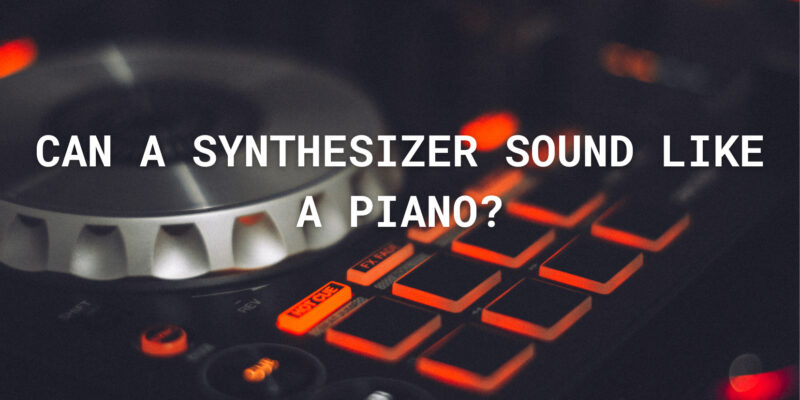The synthesizer, with its electronic wizardry and versatile sonic capabilities, has been at the forefront of music technology for decades. One of the intriguing questions often posed is whether a synthesizer can convincingly emulate the timeless sound of a piano. In this article, we’ll explore the fascinating world of synthesizers and their ability to replicate the nuanced tones of a piano.
Understanding Synthesizers
To grasp whether a synthesizer can sound like a piano, it’s essential to understand how synthesizers work. Synthesizers generate sound electronically by manipulating waveforms, filters, and other parameters. They do this in a fundamentally different way from acoustic pianos, which produce sound through the striking of strings.
Emulating Piano Sounds
While synthesizers are renowned for their ability to create innovative and experimental sounds, many modern synthesizers are equipped with features that allow them to convincingly mimic pianos. Here are some ways they achieve this:
- Sample-Based Synthesis: Some synthesizers use sample-based synthesis, which involves recording and reproducing actual piano sounds. These samples capture the nuances of a real piano, from the initial attack of the keys to the sustain and decay of the notes. This method provides a highly authentic piano sound.
- Physical Modeling: Advanced synthesizers employ physical modeling techniques to emulate the behavior of a piano. They simulate the physics of piano strings, hammers, and soundboard interactions to create lifelike piano tones.
- Layering and Mixing: Many synthesizers allow users to layer multiple sounds and blend them. By combining piano samples with other synthesized sounds or effects, it’s possible to create unique hybrid piano-like tones.
- Dynamic Expression: Synthesizers often incorporate velocity sensitivity, which responds to how hard keys are struck. This feature enables players to achieve varying levels of expression similar to playing a piano.
- Effects and Processing: Synthesizers can apply various effects and processing techniques to piano sounds, such as reverb, chorus, and equalization, to further enhance their authenticity.
Challenges and Limitations
While synthesizers have made significant strides in emulating piano sounds, there are inherent challenges and limitations:
- Complexity of Acoustic Pianos: Acoustic pianos have intricate and dynamic mechanisms that are challenging to replicate fully. The subtle nuances and interactions of piano strings, hammer mechanisms, and the soundboard are challenging to imitate precisely.
- Player Skill: Achieving a piano-like sound on a synthesizer often requires skill and familiarity with sound shaping and programming. Novice users may find it challenging to produce realistic piano tones.
- Variability: Synthesized piano sounds may not have the same natural variability as acoustic pianos, which can produce subtly different tones with each strike of a key.
Choosing the Right Synthesizer
If your goal is to replicate the sound of a piano, it’s essential to choose a synthesizer that specializes in piano emulation. High-quality digital pianos and stage pianos, while not traditional synthesizers, are designed specifically to provide authentic piano sounds and playing experiences.
Conclusion
In conclusion, synthesizers have evolved to the point where they can convincingly mimic the sound of a piano, thanks to sample-based synthesis, physical modeling, and advanced technology. While they may not capture every nuance of an acoustic piano, modern synthesizers offer an impressive range of piano-like tones, making them valuable tools for musicians and composers seeking versatility and creativity in their music. Whether you’re a pianist looking for electronic experimentation or a synthesist exploring the world of piano sounds, the synthesis world offers an exciting realm of possibilities.

